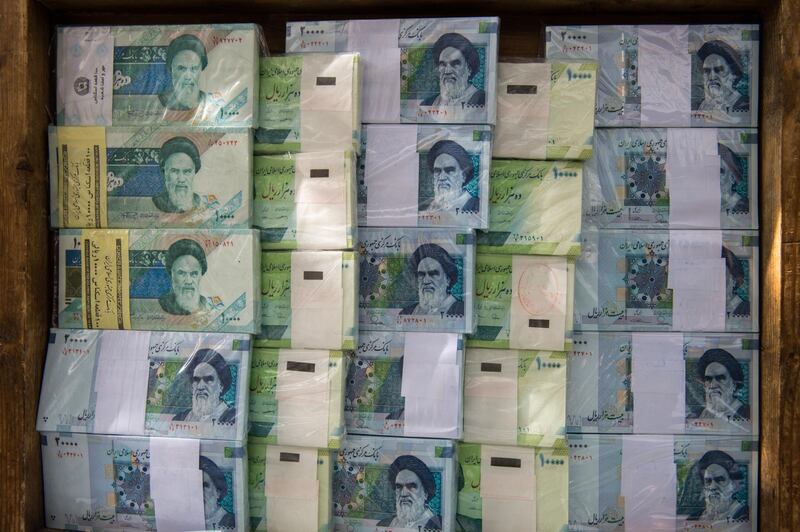Iran's cabinet gave initial approval on Wednesday to a plan to slash four zeroes off its currency, the rial, state media reported, after the currency plunged in the past year in an economic crisis fuelled by US sanctions.
Proponents have said the reform would, among other things, make transactions easier simply by avoiding huge figures. Currently, one US dollar is worth about 120,000 Iranian rials.
The proponents say the move would also make it cheaper to print banknotes. The proposed reform has to be passed by parliament and approved by a clerical body that vets legislation before it takes effect.
State television said the cabinet approved a bill to remove four zeros from the national currency under a plan originally proposed by the central bank in January.
Such proposals have been floated since 2008, but the idea has gained strength as the rial lost more than 60 per cent of its value in 2018, despite a recent recovery engineered by the central bank in defiance of US sanctions.
President Donald Trump re-imposed US sanctions on Iran last year after pulling out of a 2015 agreement with Tehran over its nuclear-power programme.
Washington has vowed "maximum pressure" on Iran's economy to force it to accept tougher limits on its nuclear and missile programmes. Iran has ruled this out.
Rial weakness disrupted Iran’s foreign trade last year and helped boost annual inflation fourfold to more than 40 percent. The weak currency and galloping inflation were among complaints raised during sporadic street protests in late 2017 and early 2018.







